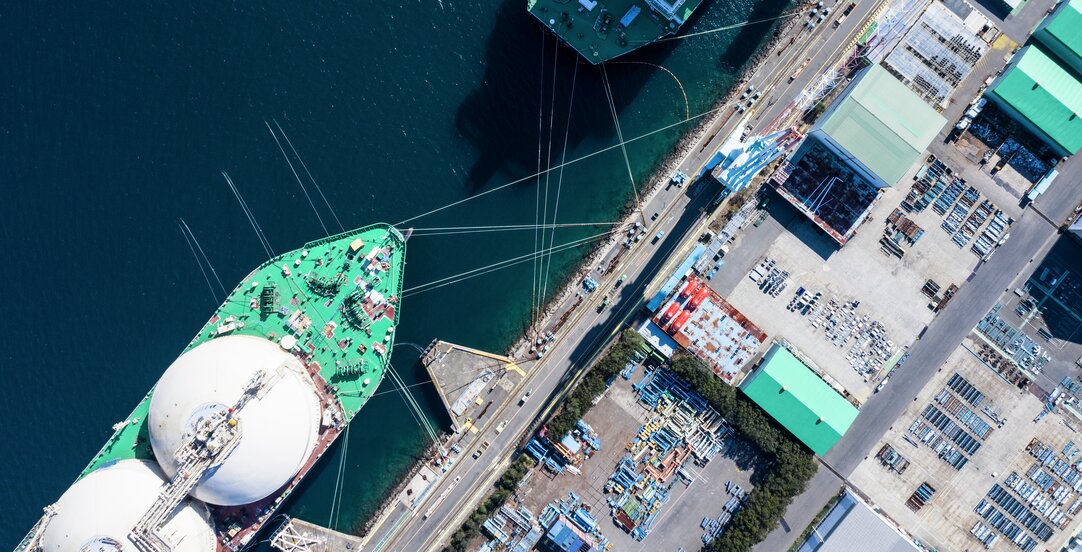Navigating floating LNG projects – hints and tips for owners

In this article, we explore some of the key issues facing vessel owners when bidding for and negotiating floating LNG projects, whether for FLNG units (floating liquefaction) or FSRUs (floating storage and regasification)
Lesetid 5 minutter
Often the procurement of the floating asset will be on a public or private competitive procurement basis, and vessel owners will be asked to compete with others in the market. There are no hard and fast rules to the way that these tenders are run, and some will deal with much of the detail at the tender phase, whilst others will leave the heavy lifting to be handled in face to face (or, more commonly in these times, virtual) discussions with the short-listed bidder(s). The wordings of bid bonds will need to be carefully reviewed to ensure these cannot be called on capriciously, and any term sheets or letters of intent will need to be analysed for legally binding content.
Up Front Costs
The documents that are needed in such projects are often complex and time consuming to negotiate. Project timelines, however, often cannot wait, and require early expenditure on certain engineering and long lead items in order to maintain the viability of the project. Thought needs to be given at an early stage as to how the vessel owner can protect itself in the event that it spends substantial sums before definitive project documents are signed, and bespoke arrangements are often entered into.
Newbuilding/Conversion Contract
Regardless of whether a bespoke newbuilding is being constructed, or an existing trading vessel is being converted, the parties will need to assess how much oversight and access the project developer is going to be given in relation to the construction/conversion contract, how free the owner is to exercise its rights under that contract, and what step in rights the project developer is to have in the event of a breach of the construction/conversion contract or the employment contract for the unit.
Delivery and Acceptance
The delivery and acceptance regime is a hugely important piece of the jigsaw, and appropriate time in the discussions should be set aside for such discussions. There will usually be deadlines for (a) arrival of the unit at the project site and (b) the passing of performance tests. Failure to meet the deadlines will usually result in a liability of the owner for significant liquidated damages, unless the owner can point to a failure on the part of the project developer or a force majeure event. Bearing in mind the significant sunk costs expended by owners up to the point of the unit arriving at the project site, it will also be important for the owners to start to receive an income stream as early as possible, to cover at least the operating expenses and the financing costs. This might be challenging for project sponsors who are yet to earn an income stream themselves from the project if the project infrastructure is not ready in time, and an appropriate accommodation will need to be reached. Thought will also need to be given as to the point at which the project sponsors can terminate the lease or charter contract for delay in delivery or acceptance, the damages which might flow from that, and the ability to accept a deficient unit and on what basis.
Payment and Performance
Once the unit has been accepted and in service, the owners will normally be entitled to a daily rate to cover both capex and opex. Detailed consideration will need to be given as to the basis on which that daily rate may be reduced or not applicable, depending on the ability of the unit to perform the services required of it. In regasification projects, the owners will often be asked to give performance warranties in respect of LNG loading rates (from a carrier to the unit), regasification flow rate and modulation, fuel consumption, and the specification of regasified LNG. In liquefaction projects, relevant performance warranties will often relate to LNG unloading rates (from the unit to a carrier), liquefaction rates, LNG retainage and the specification of LNG sent out. Prudent owners will seek to cap these liabilities and ensure they are the sole remedies for the particular shortfall in performance.
Country Issues
It is vitally important for a unit owner to get on top of the local regulatory issues at an early stage as these can add significantly to the complexity and costs of any project, and having reliable local input throughout the process is key. Depending on the jurisdiction in question, import and export regimes can be burdensome, the tax landscape may be challenging and the regulatory and environmental issues should never be underestimated. There may also be political risks which will need to be factored in to the parties’ thinking, and insurance advice at an early stage in the process is always helpful.
Limitations on Liability
The usual liability framework deployed in floating LNG projects is a knock-for-knock regime akin to FPSO or drilling contracts in the oil sector. Simplistically, both parties will take responsibility for their own people and property (including pollution and contamination), and for liability to third parties arising out of the indemnifier’s negligence. We would expect to see a well thought out consequential loss exclusion covering each party’s group, and an overall cap on the unit owner’s liability. The devil is often to be found in the detail of these provisions, and warrant a careful review during the course of negotiations.
Financing
The ability of each party to finance their project scope is paramount, and must always be borne in mind throughout negotiations to ensure that the final commercial deal reached between the parties is “bankable”. Lenders will generally wish to have various standstill and step-in rights in the event of a breach by their borrower, and time should always be allocated to deal with complex direct agreements between the project parties and their respective lenders.
At Wikborg Rein we have many years’ experience of representing vessel owners in these types of floating projects, and are ideally placed to assist our clients in achieving their desired outcomes.

